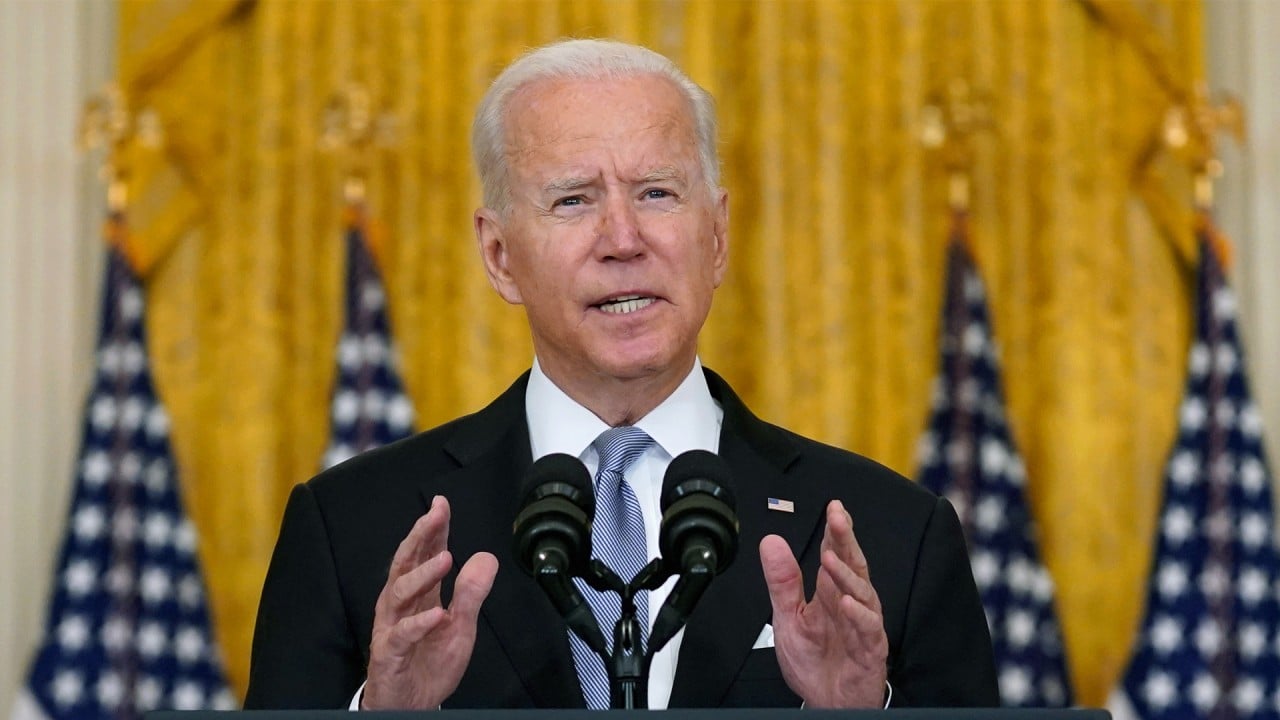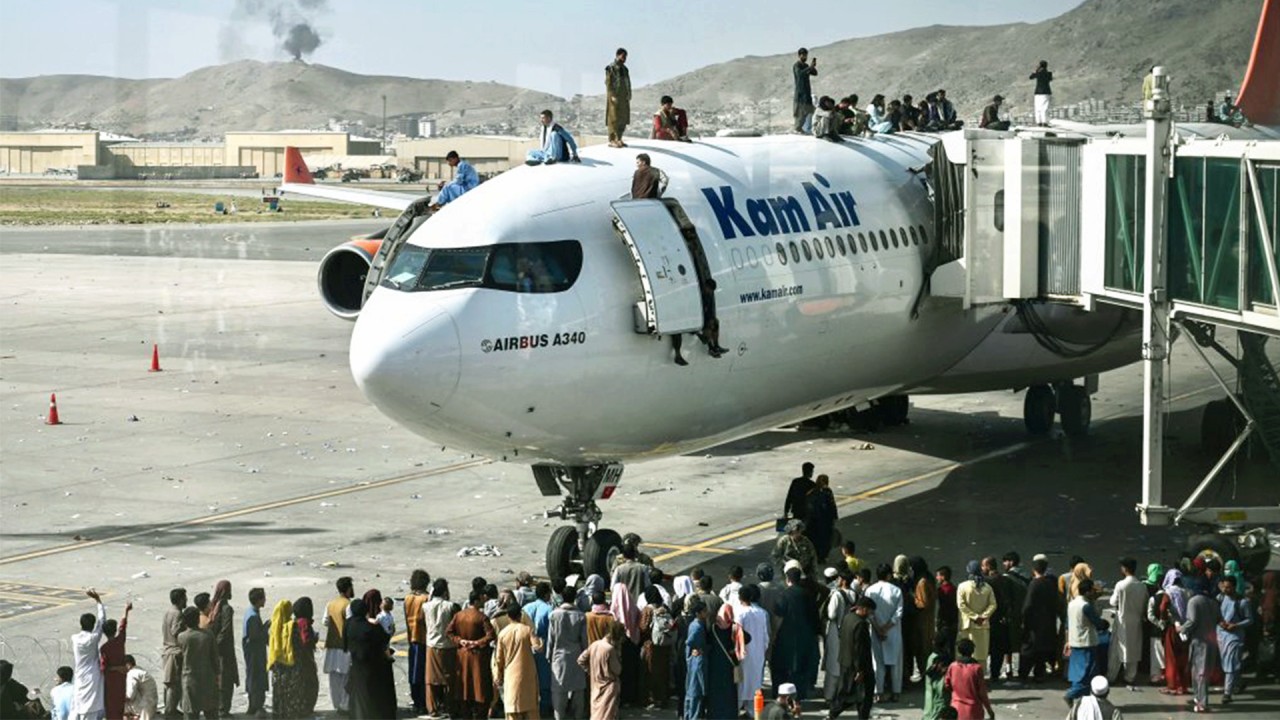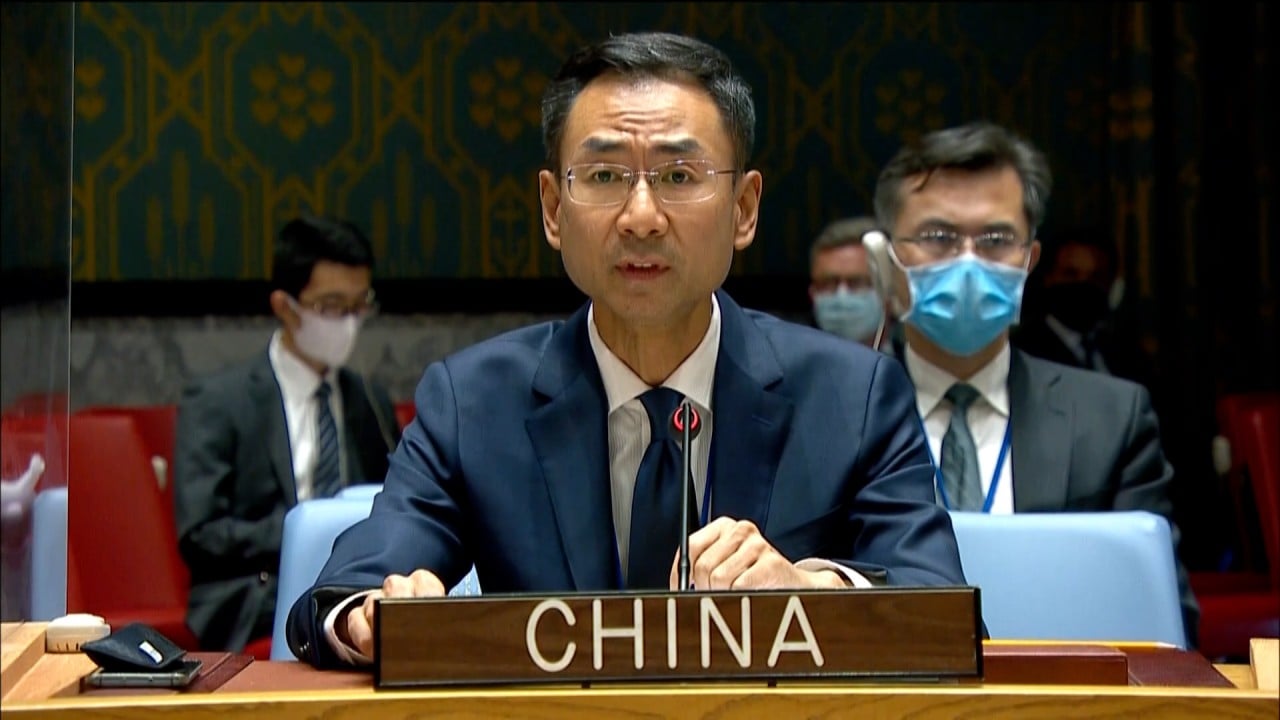
Russia says Afghan leader Ashraf Ghani fled with cars, helicopter full of cash
- Ashraf Ghani, whose current whereabouts are unknown, left Afghanistan on Sunday
- Russia claims he had to leave some money behind, would not all fit in helicopter
The report quoted embassy spokesman Nikita Ishchenko as saying that “the collapse of the regime … is most eloquently characterised by how Ghani escaped from Afghanistan: four cars were filled with money, they tried to shove another part of the money into a helicopter, but not everything fit. And some of the money was left lying on the tarmac”.
Ghani left Kabul on Sunday as the Taliban swept into the Afghan capital. Media reports suggested that the president went to the neighbouring Tajikistan or Uzbekistan, but there was no official confirmation of his whereabouts.
Kremlin envoy on Afghanistan Zamir Kabulov on Monday described Ghani’s flight from Kabul as “disgraceful”, adding that Ghani “deserves to be brought to justice and held accountable by the Afghan people”.
He said earlier that it was unclear how much money the fleeing government would leave behind.

02:32
Biden defends US withdrawal after Taliban seizes Afghanistan
Russia’s ambassador to Afghanistan Dmitry Zhirnov told the Ekho Moskvy radio station that, judging by the first 24 hours of the Taliban’s control of the Afghan capital, “right now the situation in Kabul is better than it was under Ashraf Ghani”. “Under the terrorist Taliban it’s better than under Ghani,” Zhirnov said.
Moscow’s criticism of Ghani, whose government had the support of Washington, comes at a time of heightened tensions between Russia and the United States.
Moscow fought a 10-year war in Afghanistan that ended with Soviet troops’ withdrawal in 1989 and has made a diplomatic comeback as a mediator, reaching out to feuding Afghan factions as it has jockeyed with the US for influence in the country.
It has hosted several rounds of talks on Afghanistan, most recently in March, that involved the Taliban – even though Russia has labelled them a terrorist organisation.

Meanwhile, Afghanistan’s vice-president Amrullah Saleh has vowed he would not surrender.
The politician is believed to have retreated to the country’s last remaining holdout: the Panjshir Valley northeast of Kabul.
“I won’t disappoint millions who listened to me. I will never be under one ceiling with Taliban. NEVER,” he wrote in English on Twitter on Sunday, before going underground.
A day later, pictures began to surface on social media of the former vice president with the son of his former mentor and famed anti-Taliban fighter Ahmed Shah Massoud in Panjshir – a mountainous redoubt tucked into the Hindu Kush.
Amrullah and Massoud’s son, who commands a militia force, appear to be putting together the first pieces of a guerrilla movement to take on the victorious Taliban, as fighters regroup in Panjshir.
Famed for its natural defences, the valley never fell to the Taliban during the civil war of the 1990s, nor was it ever conquered by the Soviets a decade earlier.
“We will not allow the Taliban to enter Panjshir and will resist with all our might and power, and fight them,” one resident said on condition of anonymity.
Such a battle would be the latest in Saleh’s long struggle against the Taliban as a onetime insurgent turned spy chief and later vice-premier.

03:24
At least 7 people killed at Kabul airport as thousands of Afghans try to flee Taliban: US officials
Orphaned at a young age, Saleh first fought alongside guerilla commander Massoud in the 1990s.
He went on to serve in his government before being chased out of Kabul when the Taliban captured it in 1996.
The hardliners then tortured his sister in their bid to hunt him down, Saleh has said.
“My view of the Taliban changed forever because of what happened in 1996,” Saleh wrote in a Time magazine editorial last year.
After the September 11, 2001 attacks, Amrullah – then a part of the anti-Taliban resistance – became a key asset for the CIA.
The relationship paved the way for him to lead the newly formed Afghanistan intelligence agency, the National Security Directorate (NDS), in 2004.

01:28
China warns UN about a possible resurgence of terrorism in Afghanistan after Taliban victory
As NDS chief Saleh is believed to have amassed a vast network of informants and spies inside the insurgency and across the border in Pakistan, where Pashto-speaking agents kept track on Taliban leaders.
The intelligence Saleh gathered provided what he alleged was proof the Pakistani military continued to back the Taliban.
Saleh’s rise however has not been without its share of dramatic stumbles.
In 2010, he was sacked as Afghanistan’s spy chief following a humiliating attack on a Kabul peace conference.
Exiled into the political wilderness, Saleh maintained his fight against the Taliban and Islamabad on Twitter, where he fired off daily tweets taking aim at his longtime foes.
A return to favour came in 2018 when he briefly oversaw the interior ministry after sealing an alliance with president Ashraf Ghani, who has now fled to an unknown location.
Saleh went on to become the former leader’s vice-premier.
His most recent political revival came as the US was preparing to exit Afghanistan and coincided with a series of assassination attempts on Saleh by the Taliban.
His latest close call came last September when a massive bomb targeting his convoy killed at least 10 people in Kabul.
Within hours of the attack, Saleh appeared in a video with his left hand bandaged, promising to fight back. “We will continue our fight,” he said.
Additional reporting by Reuters


.png?itok=arIb17P0)